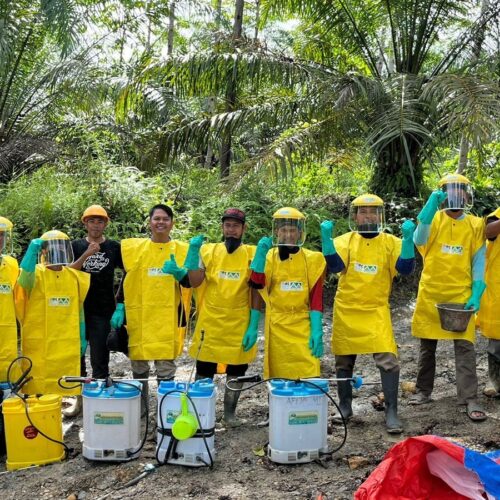Share
The Labour Transformation Programme addresses how mills and plantations can take practical steps to improve their labour practices and add value to the company's competitive edge.

As global expectations rise to adhere to international standards such as the UN Guiding Principles on Business and Human Rights (UNGPs), the ILO Core Conventions, and emerging regulatory frameworks like the EU Corporate Sustainability Due Diligence Directive (CSDDD), downstream brands are demanding that midstream and upstream suppliers implement a due diligence approach to human rights in order to identify, prevent, mitigate, and address human rights risks. Furthermore, many companies in the palm oil supply chain have made significant progress in upholding the No Deforestation, No Peat and No Exploitation (NDPE) commitment to address environmental and social issues, which include but not limited to protecting workers’ rights.
Meeting all these requirements are essential for maintaining access to international markets, given the growing regulatory requirements, consumer expectations, and pressures from investors and civil society. Not meeting these standards can result in serious repercussions, including loss of market access, harm to reputation, and financial penalties.
The Labour Transformation Programme (LTP) is designed to strengthen the capacities of palm oil refineries, mills, and plantations to identify, prevent, and mitigate labour-related risks. These efforts will be continuously monitored using quantified key performance indicators (KPIs).
The programme aligns with No-Deforestation, Peat or Exploitation (NDPE) requirements, along with standards established by the Malaysian Sustainable Palm Oil (MSPO) 2.0 and the Roundtable on Sustainable Palm Oil (RSPO).
It also complements the international frameworks for the protection of human rights: such as the UN Guiding Principles on Business and Human Rights, the International Labour Organization (ILO) conventions, the OECD Guidelines for Multinational Enterprises, and the Universal Declaration of Human Rights (UDHR).
Collaborate with downstream brands and midstream refineries to secure the participation of mills and plantations.
Refineries to monitor the progress of suppliers.
Engagement with suppliers will include document reviews, workers and management interviews, contractors’ interviews (if relevant) and on-site observations.
9 to 11 months

Clear and quantified progress can be reported to downstream brands to maintain and enhance continuous access to wider international market



Earthworm Foundation has completed 34 LTP engagements and impacted 2303 workers.

In 2017, the Fuji Oil Group launched a supply chain Labour Transformation Programme (LTP) in collaboration with Earthworm. LTP identifies labour-related issues with Fuji Oil Group's suppliers and helps its suppliers build management systems to address these issues.
In Peninsular Malaysia, Earthworm worked with Ferrero, Intercontinental Specialty Fats (ISF), and Dara Lam Soon (DLS), through the Labour Transformation Programme (LTP) to strengthen recruitment systems and improve working conditions for 420 migrant workers.
Alongside LTP, suppliers also implements Ethical Recruitment Due Diligence (ERDD) programme, which complements LTP to improve recruitment practices. Together these initiatives show how supplier led-action can turn human rights commitments into real change at the mill and plantation level
Read the Human Rights Due Diligence in Action case study to learn more.

'The LTP helps third-party mills and plantations to refine their management practices on labour rights. The program focuses on four key labour rights areas prevalent in the Malaysian palm oil industry – employment contracts, recruitment practices, grievance mechanisms and freedom of movement – and engages small and medium-sized mills and plantations to address challenges in these areas.'
Contact Lynda Lim, Technical Lead (Social & Human Rights), at l.lim@earthworm.org for further information on the Labour Transformation Programme (LTP) and how Earthworm Foundation can help.